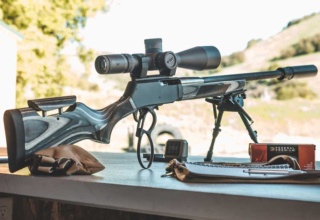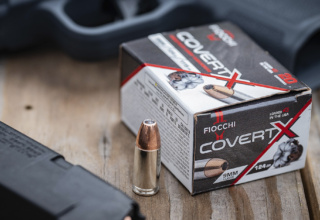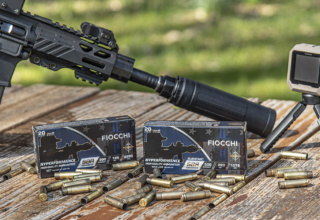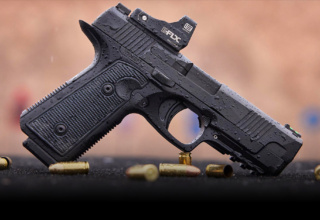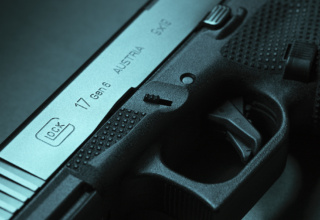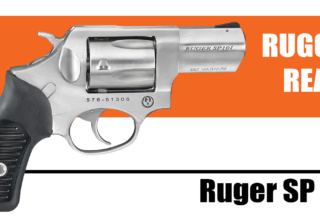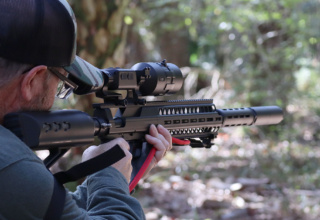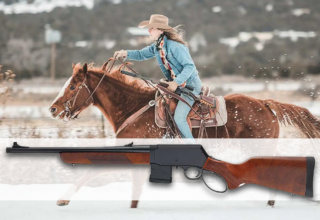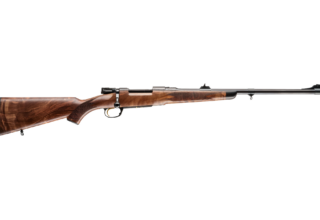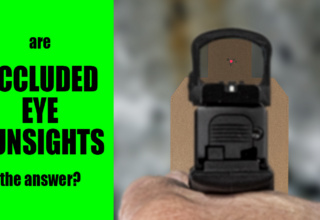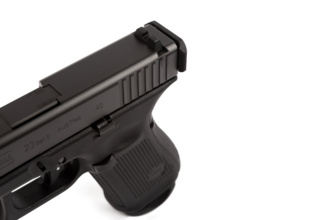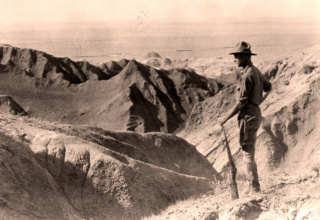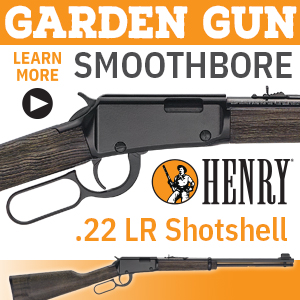Best known for their exquisite lever-action carbines, Henry expands the Big Boy legacy with a six-shot revolver series
by Bob Campbell
When Henry Repeating Arms introduced their first revolver, Henry fans were interested. Henry developed a modern double-action swing-out cylinder revolver with exacting tolerances and excellent fit and finish. Henry could have designed a single-action revolver to complement their lever action rifles. Instead, they designed a revolver that is practical for field use and personal defense.
The Henry Big Boy is similar in outline and purpose to some of the great revolvers of the past, such as the Colt New Service or Smith & Wesson Heavy Duty. A fan of blued steel, brass, and walnut will appreciate the Big Boy. But anyone needing a powerful and reliable revolver for defense in the home or field will also give the Big Boy a decisive nod. Perhaps best of all, the Big Boy is chambered for the powerful .357 Magnum cartridge.
The Big Boy is a robust revolver intended for reliability under hard use. There are two types offered: one with a standard square butt grip and the other with a bird’s head grip. Each has a four-inch barrel. The revolver features a transfer bar firing system, making for a very safe handgun. Needless to say, a revolver chambered in .357 Magnum also accepts the shorter .38 Special cartridge.

The Big Boy is a stout, burly revolver with a heavy barrel. A four-inch barrel is a good all-around length for most purposes. The action allows the shooter to fire the revolver by simply pressing the trigger. A long pull both cocks and drops the hammer. Alternately, the hammer may be manually cocked for single-action fire. The secrets of a smooth double-action trigger have been known for more than one hundred years. Cylinder rotation runs counterclockwise. Internally, the Big Boy is more Smith & Wesson than anything else, but it features a transfer bar that S&W does not use, and it features a coil spring hammer spring. The action is smooth…very smooth in double-action fire. For a deliberate, long range shot, the single-action trigger is quite silky, with a rapid reset.

The cylinder release presses forward to release the cylinder. A large, knurled knob is an exclamation point on the ejector rod. This knob isn’t shrouded. When manipulating the ejector rod, you may strike the rod sharply without danger of punching a hole in your palm. The chambers are nicely polished. An advantage of the Big Boy is that it is practically devoid of sharp surfaces. It is smooth. The grips are also nicely done. The sights are simple, hard-use sights — a rear groove or notch and a post front sight. Sight regulation may be adjusted by use of two spare front sights. They may be changed by simply removing a screw.
A bane of fixed-sight revolvers is elevation adjustment. Interchangeable sight blades go a long way in solving that problem.
Finish is mostly blue steel with a brass grip frame.

This four-inch barrel revolver weighs 35 ounces. A long, double-action trigger breaks cleanly at 12 pounds. Single-action compression is 3.5 pounds. The curved trigger is controllable and comfortable. A nice feature is a button inside the trigger guard that is pressed to allow removal of the cylinder for easy cleaning.

I was initially concerned firing .357 Magnum cartridges with the grip design. Modern Magnums usually feature recoil-absorbing grips. I was in for a surprise.

I set targets up at 5, 7, and 10 yards. I began with Federal American Eagle 130-grain FMJ loads, firing double-action pairs at 7 yards and advancing to 10 yards. This revolver is as smooth as anything I have fired in the past few decades. The grip design is not only comfortable, but recoil is also muted. The gripping surfaces are devoid of sharp edges. I found the sights OK for rapid double-action work as long as I retained focus on the front sight. Recoil is modest.

Moving to heavier loads, I tried Fiocchi’s 110-grain JHP +P. This is a strong .38 Special loading well suited to personal defense or outdoors use. Recoil was subjectively little more than standard loads. With some trepidation, I loaded up Fiocchi’s 158-grain .357 Magnum. I should not have sweated the outcome. There was flash blast and recoil, but it was not painful. Muzzle rise was greater, of course, but the Henry Big Boy was never painful to fire. I also fired a hot, fast .357 Magnum Hornady 125-grain XTP, and the Hornady Critical Defense as well. These loads are running about 1400 fps. Muzzle blast is impressive. I fired several double-action pairs, controlled pairs, and, with concentration, I was able to strike the target in center mass well past 25 yards. I am impressed with the Herny Big Boy. Function is flawless and control and comfort far better than I first imagined.
Absolute Accuracy

I dropped the Henry into the MTM pistol rest for group shooting at 25 yards. I fired all shots single-action, taking plenty of time to affirm the sight picture and sight alignment. I carefully pressed the trigger and took every advantage for accuracy. Results were good. I would, perhaps, like larger sights. But then, this is a hard-use revolver, and the sights will not be knocked out of alignment.
.38 Special / 5-shot group average
- Fiocchi 110-gr. JHP +P / 2.0 in.
- Federal 120-gr. Punch +P / 2.1 in.
.357 Magnum / 5-shot group average
- Fiocchi 158-gr. JHP / 2.2 in.
- Federal Train and Protect 125-gr. JHP / 2.5 in.
- Hornady 125-gr. XTP / 2.5 in.
Packing the Big Boy

I slipped the Big Boy into several revolver holsters on hand. It fits holsters molded for the K-frame/Taurus Tracker-size revolver. A tightly molded L-frame or Python holster is OK, but the Smith & Wesson K-frame size seems ideal. The revolver also accepts K-frame-type HKS speed loaders. I had on hand an old Bianchi thumb break holster that was a good fit and should be a good field holster. A Galco Summer Comfort IWB is a fine concealed carry holster. With the Summer Comfort, most of the handgun is concealed in the trousers. A reinforced holstering welt prevents the holster from collapsing after the handgun is drawn, allowing an easy re-holster. Dual belt loops offer a rigid fit to the belt.
What I Like
- The appearance of the revolver is excellent — even better than the images show. For protection in the wild against feral dogs, the big cats, and average bears (not to mention the occasional aberrant biped), the Henry will serve well. It is easier to shoot than I imagined it would be. It may look old school, but it shoots like a modern tuned revolver.
What I Don’t Like
- As it turned out, the firing grip is good and quite comfortable. I would change the sights. The rear notch could be more open. But then, it is a traditional hard-use revolver. I would think that XS will offer a Big Dot front sight for the Big Boy, as it could be easily changed.
What I Would Change
- The sights would be it. I suppose a recoil absorbing rubber grip from Hogue would be an advantage in some situations.
Compare To
- This gun is tough to compare since there are not many high-quality double-action .357 Magnum fixed-sight revolvers currently in production. The Ruger GP 100 is sometimes offered in a fixed-sight version. The Henry is slightly smaller than the GP 100 and smoother. Fixed-sight K-frame guns from Taurus and Smith & Wesson are lighter. Let’s face it…the Big Boy is unique, and you will probably purchase it for the looks alone. Yet as it turns out, the Henry shoots as well as it looks.



